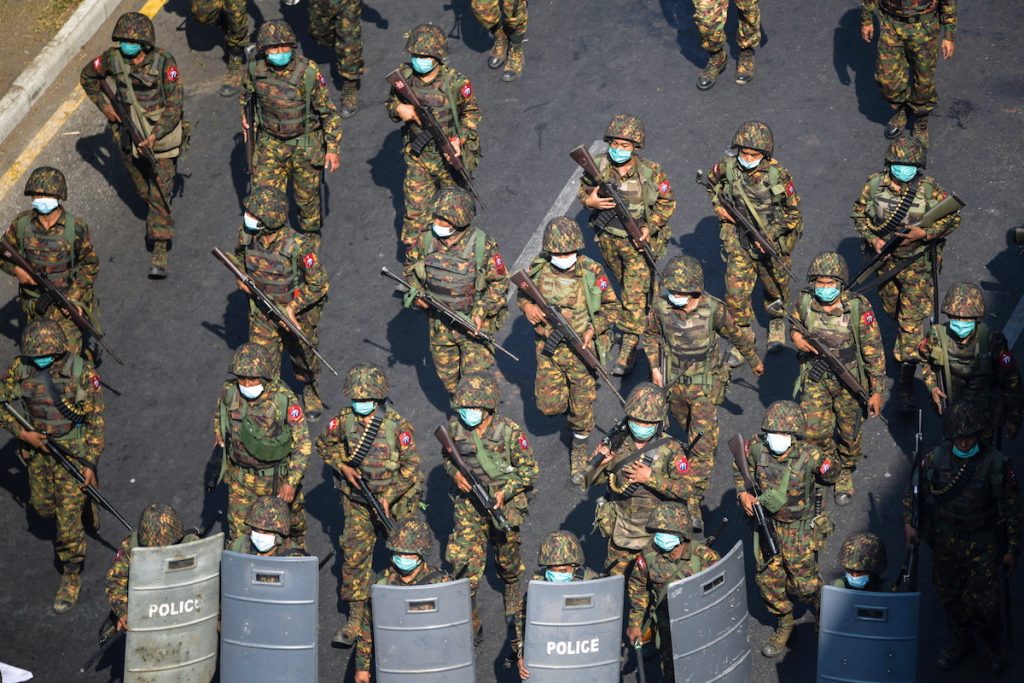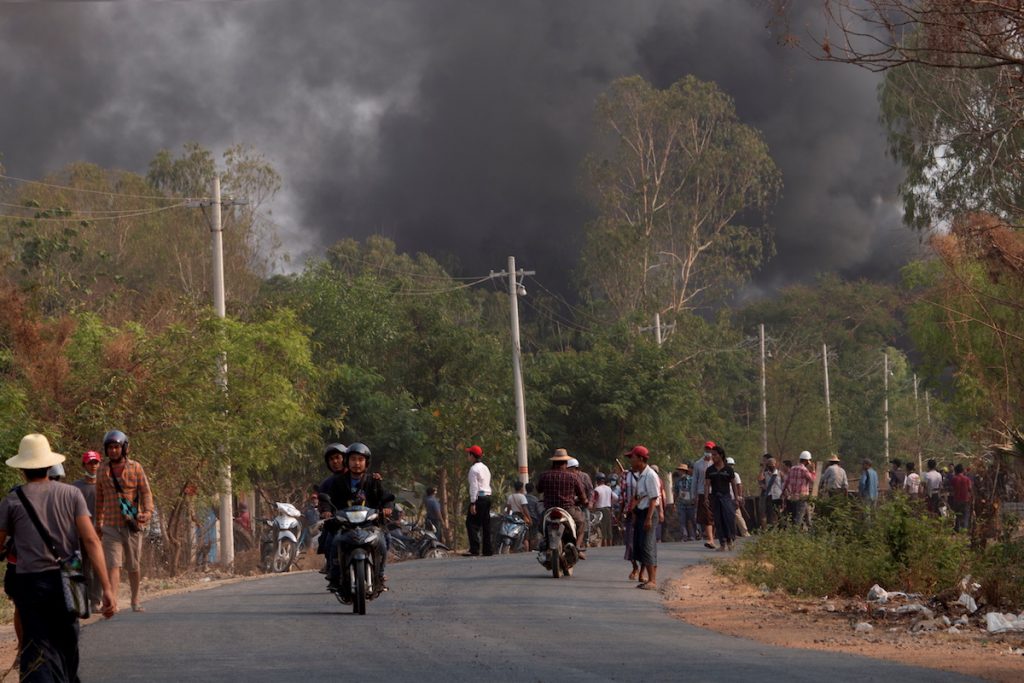A top United Nations official has warned that Myanmar risks falling into a conflict similar to the civil war that ravaged Syria.
UN High Commissioner for Human Rights Michelle Bachelet said the Myanmar military — known locally as the Tatmadaw — appears intent on intensifying “its pitiless policy of violence” against the country’s population “using military-grade and indiscriminate weaponry.”
“We have witnessed yet another weekend of coordinated bloodshed in many parts of the country, including the reported mass killing of at least 82 people in Bago between Friday and Saturday,” Bachelet said April 13.
“There are clear echoes of Syria in 2011. There too, we saw peaceful protests met with unnecessary and clearly disproportionate force,” she said. “The state’s brutal, persistent repression of its own people led to some individuals taking up arms, followed by a downward and rapidly expanding spiral of violence all across the country.”
Bachelet said that the UN High Commissioner for Human Rights at the time warned that the failure of the international community to respond with united resolve could be disastrous for Syria and beyond. “The past ten years have shown just how horrific the consequences have been for millions of civilians,” she said.
“I fear the situation in Myanmar is heading towards a full-blown conflict. States must not allow the deadly mistakes of the past in Syria and elsewhere to be repeated.”
The UN official’s warning came as Myanmar activist group, the Assistance Association for Political Prisoners, said that security forces in the country have killed 710 protesters since the Feb. 1 military coup.

In a statement, the office of the UN high commissioner said over the weekend, credible reports indicate that Tatmadaw forces opened fire with rocket-propelled grenades, fragmentation grenades and mortar fire in Bago in the south of the country. The international body also said that security forces also reportedly prevented medical personnel from helping the wounded, as well as charging relatives a “fine” of roughly US$ 90 to claim the bodies of those who were killed. Some individuals are also now resorting to the use of makeshift or primitive weapons in self-defense, the statement said.
Clashes between the military and ethnic armed groups have also intensified in several locations in Kachin, Shan and Kayin states, where the military have been employing airstrikes that have killed and displaced civilians.
As arrests continue, with at least 3,080 people currently detained, the office of the UN high commissioner said there are reports that 23 people have been sentenced to death following secret trials — including four protesters and 19 others who were accused of political and criminal offences.
Mass arrests have forced hundreds of people to go into hiding, and reports suggest that many journalists, civil society activists, celebrities and other public figures are being sought, many simply because of the dissent they have been expressing on-line. Wireless broadband and mobile data services were cut indefinitely on April 2, leaving the vast majority of people without access to vital sources of information and communication.

The coup has plunged Myanmar into crisis after 10 years of tentative steps toward democracy with daily protests and workers in many sectors on strike, bringing the economy to a standstill. The country’s education and health infrastructure have also been brought to the brink of collapse, leaving millions of Myanmar people without livelihood, basic services and, increasingly, food security.
Thousands of internal migrants have left urban centers for their home communities — which once relied on their income. COVID-19 measures have effectively been brought to a standstill.
Information has become scarce because of the junta’s curbs on broadband internet and mobile data services.
The military says it had to overthrow Suu Kyi’s government because a November election again won by her National League for Democracy was rigged. The election commission dismissed the accusation.
Suu Kyi, 75, who has led Myanmar’s struggle against military rule for decades and who won the Nobel Peace Prize in 1991, has been detained since the coup and charged with various offences. These include violating a colonial-era official secrets act that alone could see her jailed for 14 years.
With Reuters






